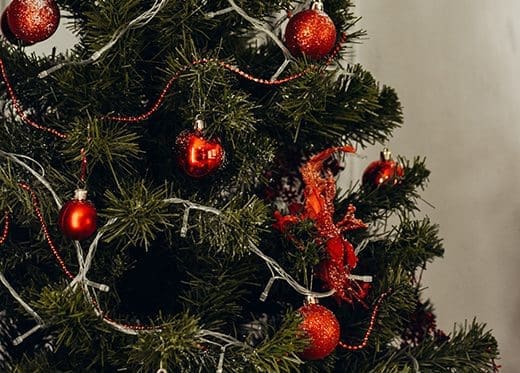K-State Research and Extension news service
Manhattan, KS— Christmas trees bring Christmas glee, but they can bring even more than that once the holiday season is past, says Kansas State University forester Charlie Barden.
“An old Christmas tree can be used to benefit birds, fish and the landscape by placing it in a corner of your deck, and spreading some birdseed nearby, or tying it to a deciduous tree or post near a bird feeder,” he said.
Christmas trees can give birds an escape from hawks or cats and keep them protected from the wind chill on cool nights. Or, Barden said, a tree can improve fish habitat and fishing by sinking it into a pond.
“The tree serves as little coral reef, in that the branches provide substrate for water plants to grow, and cover for minnows and other forms of small aquatic life,” Barden said.
Barden said sinking a tree is simple: Tie a cinder block with a short, stout rope to the base of the tree and drop it in — with permission from the pond owner.
Christmas trees can also be allowed to dry and used as firewood. But, Barden cautions, “beware that most conifer species tend to spark and pop more than hardwoods, as resin pockets in the wood make tiny explosions.”
Another option, according to Barden: Many municipalities allow Christmas trees to be placed on the curb for pickup, then burned or ground for mulch.
Barden and his colleagues in K-State’s Department of Horticulture and Natural Resources produce a weekly Horticulture Newsletter with more tips on maintaining home landscapes. The newsletter is available to view online or can be delivered by email each week.
Interested persons can also send their garden- and yard-related questions to Ward Upham at wupham@ksu.edu, or contact your local K-State Research and Extension office.













